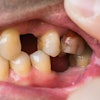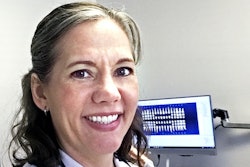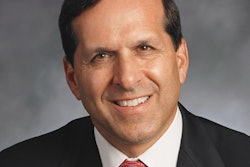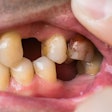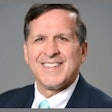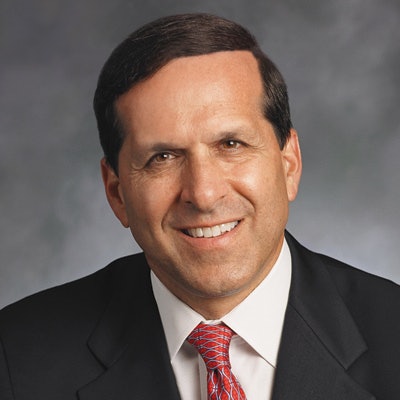
Every dentist knows that their team is important. But when we refer to the team being important in a traditional sense, we are referring to the fact that a dental practice cannot reach a desired size or achieve a certain level of production without enough "bodies" in the office. Those bodies are hired and trained, which then helps the practice follow its basic daily operations. While this formula has worked for many years, it will no longer carry dental practices forward toward increased growth.
What is so different about today's dental practice team? The differences include psychological desires, cultural fit, and skill sets. Your team members, like many employees in businesses throughout the U.S. and worldwide, will no longer tolerate jobs that don't fit with their financial, motivational, and psychological desires. Furthermore, the concept of someone working for you is now outdated. You must think of your team as people who work with you.
So, how important is your team? They are the single most important factor in the success of most dental practices.
A brief history of the team Dr. Roger P. Levin.
Dr. Roger P. Levin.Until the onset of the pandemic, most practices were able to fully staff all positions, which allowed them to grow and add new team members as needed. Further, most team members had what is called a transactional relationship with the practice. They were hired to do a job, they got paid, and they were expected to do the job. There were exercises in many practices surrounding core values, mission, and culture, but in most practices, these exercises were limited.
In a Levin Group 30-year ongoing study of the top producing dental practices (10%), we found 17 principles that these practices had in common. Several of those principles surrounded and focused on the team. In addition, there became no question that a team that moved from a transactional relationship to a true cultural relationship, where team members focused on continual improvement and learning believed that they had a purpose, enjoyed the camaraderie of the doctor and other team members, and felt that the working environment was positive and supportive, was more effective. This is not to say that all you need for success is to hire people of this nature, because in most cases, team success is derived from a combination of the individual capabilities combined with your leadership, coaching, and mentorship.
We believe that for today's successful dental practices, the transactional relationship is dead. People who are thoughtful, self-motivated, and self-disciplined don't simply want to go to a job and then go home. They view what they do each day as their responsibility and are highly committed and proud of accomplishing excellent results. It is also notable that in the top producing dental practices, we routinely found that team members were aware of the exact results that were expected, knew the measurements that were associated with their job, and kept track of their performance on their own. If you asked many team members in these practices for the production goal of the day, number of starts year to date, collections, no-shows, number of active patients, overdue patients, status of no-shows, and a host of other statistics, each person responsible for those areas could usually tell you.
This is because one of the 17 principles that the top 10% of high-producing dental practices typically have in common is that the staff have an ownership mentality. They don't come to work simply to get a paycheck. They come to work as if they owned the practice and know what they must do. They measure their results and make independent decisions. This is all encouraged by the leadership of the practice, which allows the office manager to spend less time managing the team and more time focused on practice operations and improvement.
So, how important is your team?
The new model of team development
Today's team members, like many employees in many different industries, have a minimum set of requirements to remain in a practice. The great resignation that we saw during the pandemic of 2020-2021 was not simply because people were given stimulus money so they could stay home. While it may have been a contributory factor, research by top business schools, organizations, and multinational corporations clearly indicated that many people had just had enough. They would no longer go to work for what they considered to be low wages, little or no training, and a lack of caring, appreciation, or recognition.
In research conducted during exit interviews, 46% of those quitting their jobs in the business world stated that nobody ever took the time to ask them about their level of satisfaction or what could be done to improve the job. Once again, I caution dentists reading this article against automatically thinking that this isn't the case in their practice. While things may not be terrible in your office, they can be improved by simply making the effort to engage more with your staff.
Furthermore, we should no longer think of the challenge in hiring as a shortage as much as it is a shift. It's a shift that many employers, including dentists, do not yet fully comprehend. One of the reasons it is not fully understood is that there is tremendous resentment about the new attitudes of team members looking for the right office or more money. However, this shift is permanent, and dental staffing will remain a challenge for many years ahead for multiple reasons.
Some of these issues include the following:
- Many workers will no longer accept four or five days a week in an office job. Dentistry, for the most part, cannot do much about that. We need dental assistants to be chairside. We need front desk staff to meet and greet patients, welcome new patients, check people out, and schedule appointments. We need the treatment coordinator to be in front of the parent or patient.
- Team members want to be compensated at a higher level. Staffing has always been the single largest expense in any dental practice. It will continue to be, and it will be even more expensive. I am not saying what that level should be, but wages are rising for labor and will now represent a higher percentage of revenue than in the past unless practices continue to grow.
- Some team members want flexibility. I have always been an advocate of having mostly full-time staff members, as their commitment level is often higher than it is for part-time team members. However, we have revised our recommendations in this area because many practices will need to engage in some part-time employment due to many people no longer being willing to work four or five days in a practice. We predict part-time staffing will become a larger percentage of the dental practice workforce, and this has already begun to happen.
- Staff turnover will most likely increase. I know this is not good news. Employees in all businesses today don't feel the same long-term alliance with their businesses that they used to. They are willing to resign from jobs without having another job lined up, to take time off, or to change jobs for financial issues or other reasons. In our study of the top dental practices, we found that one of the principles that they typically had in common was that they had higher staff longevity, with an average tenure of approximately 11 years. These practices had figured out effective formulas and approaches for encouraging team members to remain with the practice. Most practices will have routine turnover in the future and need to rethink their entire approach to teambuilding to decrease this effect.
Dr. Roger P. Levin is CEO of Levin Group, a leading practice management and marketing consulting firm. To contact him or to join the 40,000 dental professionals who receive his Practice Production Tip of the Day, visit LevinGroup.com or email [email protected].
The comments and observations expressed herein do not necessarily reflect the opinions of DrBicuspid.com, nor should they be construed as an endorsement or admonishment of any particular idea, vendor, or organization.



